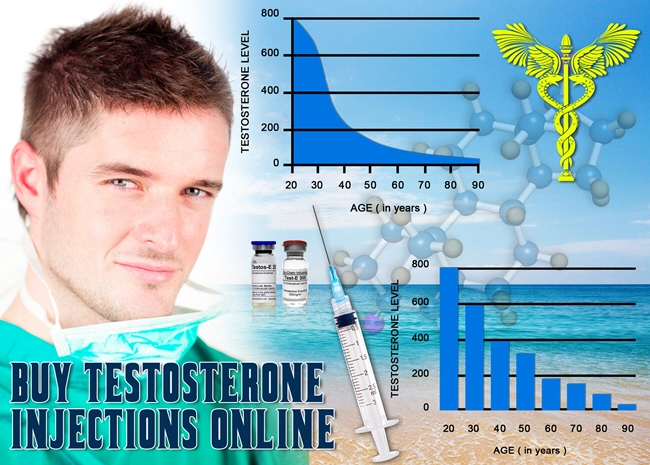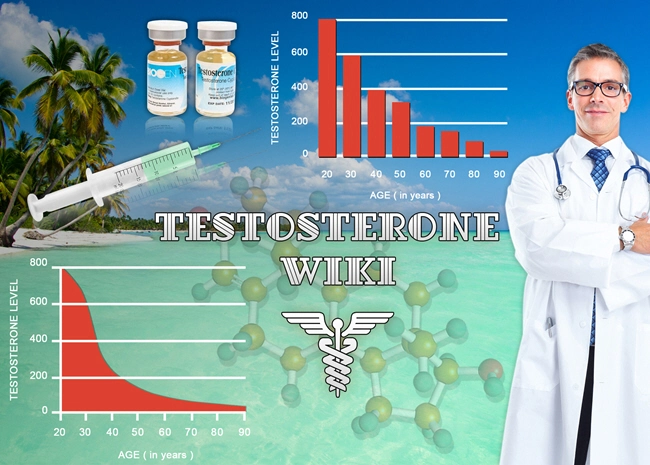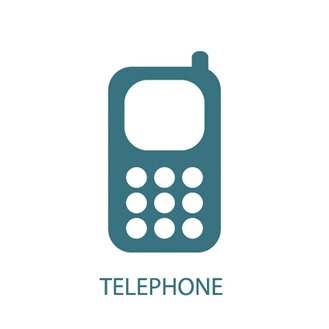
Testosterone Replacement Therapy:
The secret weapon for controlling Erectile Dysfunction and Sleep Apnea
Decades of research have conclusively demonstrated the crucial importance of deep, restorative sleep. Lack of sufficient sleep or disruptive sleep has been linked to a broad range of adverse health problems. Here is a list of the issues that might arise due to sleep deprivation:
Obesity. A ravenous appetite for junk food has been noted in people who do not get adequate sleep.
Hormone disruption. When we sleep our bodies get busy and produce vital life-sustaining hormones like human growth hormone (HGH), and testosterone. Chronic insomnia results in lower levels of these critical hormones.
Increased risk of cardiovascular disease. Heart attack, stroke, and high blood pressure are problems that we don’t need, and a good night’s sleep is a good
 line of defense against these health robbers.
line of defense against these health robbers. Elevated risk of diabetes. When we don’t get adequate sleep our body’s ability to control blood sugar goes on strike. The consequences can be deadly.
Brain fog and memory issues.
Mental health issues. Depression, anxiety, confusion, and other mental complications can also be traced to a lack of sleep.
These are some of the more well-known problems that are linked to inadequate sleep.
But there are two other conditions associated with insufficient sleep:
Erectile Dysfunction and Sleep Apnea
Erectile Dysfunction (ED). That’s right. Studies have established an association between a lack of deep sleep and erectile dysfunction. Remember this: ED is often the “canary-in-the-coalmine” warning sign of other underlying health conditions such as:
Heart disease. Heart valve disease, heart infections, heart failure, atherosclerotic disease, cardiac arrhythmias are a few of the many heart issues that can strike at any time.
Heightened cholesterol (particularly LDL-C, low-density lipoprotein cholesterol, the so-called “bad cholesterol.)
Obesity. Body Mass Index (BMI) is a person's weight divided by their height. BMI is calculated on a scale of below 18.5 (underweight); 18.5-24.9 (healthy weight); 25.0-29.9 (overweight); 30.0 and above (overweight). A person standing 5 feet 10 inches and weighing 125 pounds would have a BMI of 17.9 which is underweight. If the same person weighed 150 pounds their BMI would be 21.5 which is healthy; if they weighed 190 their BMI would be 27.3 which is overweight, and if they would weigh in at 260 they would be classified as obese. The Body Mass Index is not perfect since it does not consider muscle mass, only height and weight. But for most people, it is a good indicator of their risk of disease.
Hypertension. Blood pressure is the pressure of your blood pressing the walls of your arteries. It is measured with two numbers: the systolic pressure that measures the pressure in your arteries when your heart beats and diastolic pressure, the pressure in your arteries when your heart rests between beats. The systolic is the top number and the diastolic is the bottom number. Normal blood pressure is less than 120/80. Hypertension is a serious condition that can result in damage to your arteries, kidneys, brain, heart, and eyes.
Depression and stress. Feeling less manly can be extremely stressful and easily lead to severe depression.
Do you see a pattern here? Take a look at those sleep deprivation symptoms again.
Perhaps no man has ever died from ED. But some men wish they could.
 And what about the problem of sleep apnea?
And what about the problem of sleep apnea?
Sleep apnea is a condition that interferes with your breathing while you are asleep. The problem with sleep apnea is that it may not upset you enough to entirely wake you up.
But it will wreak havoc on your ability to obtain the deep rapid eye movement (REM) sleep that is so beneficial to your rest and recovery.
How do you know if you are suffering from sleep apnea?
Here are a few signs of sleep apnea you need to be aware of:
Memory problems. Sleep clears the cobwebs out of the brain like a sweeper at the theater after the movie viewers have gone home. If this does not happen junk builds up, with hideous consequences.
Bad temper. Flaring temper tantrums are often a result of feeling miserable, which is a result of sleep deprivation.
Fatigue. Most athletes agree on one thing: sound sleep is the best picker-upper. Without sufficient sleep, all of the energy drinks and stimulants will not make up for the missing zzzs.
Daytime sleepiness. This is obvious. If the body does not get the sleep it needs in the evening it will look for it at any time...and that may mean daytime, which is usually not appropriate.
Depression. The mind and the body are intrinsically intertwined, and if the body is miserable so is the mind.
Anxiety. If we are not functioning on all 8-cylinders we can't help but be anxious about completing what we know we need to do for our daily obligations and commitments. It's that simple.
Dry mouth. A result of breathing obstruction caused by sleep apnea is sleeping with the mouth open. This is not a life-threatening condition but it is an annoyance.
Sexual dysfunction. Poor circulation, fatigue, stress, and depression can lead to a loss of libido and erectile dysfunction.
Hopefully, you are seeing how the earlier-mentioned patterns continue. Sleep apnea = lack of sleep = erectile dysfunction = a boatload of other adverse health issues.
So is there anything men with these problems can do to regain their precious manhood?
Yes...Testosterone Replacement Therapy (TRT)!
Beginning at around age thirty men begin to experience a decrease in testosterone at approximately 10% a decade. The results are not delightful: decreasing muscle mass, insomnia, irritability, fatigue, weight gain, and erectile dysfunction slowly begin to creep up on many men as they age.
Do you see the link between sleep apnea, lack of sleep, and ED? It is not difficult to connect the dots. Young men have loads of testosterone flowing through their veins. Coincidentally, they normally experience few if any of the above-listed symptoms.
By restoring testosterone to a healthier level many of these afflictions dwindle and allow men to enjoy the vigorous and hearty lifestyle of their younger days.
Consider this. Health is holistic and connected to the entire body’s systems. An improvement in one aspect of health can cause a spillover cascade and provoke beneficial changes in other areas.
For example, adequate levels of testosterone revitalize energy and make men feel like getting back to the gym. This in turn leads to better sleep by relieving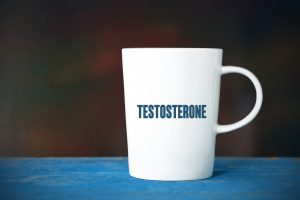 stress and helps with ED due to exercise increases blood flow to all areas of the body.
stress and helps with ED due to exercise increases blood flow to all areas of the body.
Deep, invigorating sleep also sets the table for more natural testosterone production.
Also, fitness training encourages healthy eating, which attacks obesity, one of the primary causes of sleep apnea.
Here is something else to think about. The damaging effects of stress are well-documented. Many medical professionals and researchers consider stress to be the number-one threat to health and longevity. If you can’t control stress forget about doing anything else to maintain good health.
Cortisol is the so-called “stress hormone.” When cortisol levels rise an avalanche of health issues accompany that rise. Cortisol causes the body to pump out an excess of a hormone called ghrelin – the so-called “hunger hormone” that produces hunger pangs and an intense desire to eat, especially the wrong type of food. This added ingesting of swill adds to the obesity epidemic, which in turn promotes sleep apnea.
If that weren’t bad enough, excess cortisol prevents us from relaxing and makes getting to sleep even more challenging. The result is back to our earlier equation = sleep deprivation = sleep apnea = ED =low testosterone. Wash, rinse, and repeat. A vicious cycle with seemingly no end in sight.
However, here is the good news. TRT doesn’t putter around – it gets to work quickly by slashing cortisol levels, which allows you to regain control of your life!
But testosterone is only part of the equation.
That’s correct. There are several other steps you can take to ensure that you will be able to enjoy energizing sleep night after night. Here are a few things to remember that will help you get to sleep and stay asleep:
Stay away from any stimulating beverages for several hours before retiring. This is an issue that is often overlooked but easily corrected. As a rule strive to avoid coffee, tea, or any other caffeinated beverages for at least 3 to 4 hours before bedtime. Experiment since this is merely a guideline. Some folks feel caffeine's effects for several hours, and others not nearly as long. Know your body and listen to it.
Follow a regular sleep schedule. We are not machines and it is indeed challenging to get to bed exactly at the same minute every night. But the more of a sleep routine you follow the easier it will be to get to sleep.
Create the right sleep environment. Pay attention to the temperature in your bedroom. Is it too cold? Too hot? The sweet spot for most people is a cool room. Also, make your bedroom as dark as possible and as quiet as possible.
Don’t work out strenuously in the evening. Again, there are exceptions to this rule. But for most people, intense exercise right before bedtime is not a good idea. Plan on spending quality relaxing time before retiring to lay the groundwork for a good night’s sleep.
Be careful about late-night eating. For some, a light snack at bedtime is the ticket for slumber. But don’t overdo it. Wolfing down a copious meal before sleep is a receipt for heartburn, weight gain, and nighttime bathroom trips that disrupt sleep.
Watch your daytime snoozing. A short mid-day siesta can be energizing but may turn into too much of a good thing. If you are experiencing chronic insomnia consider how long you are napping during the day.
Avoid alcohol before bedtime. At first glance, this may seem contradictory. After all, alcohol is relaxing, and many drink to take the edge off. But numerous studies have shown that alcohol can lower the quality of your sleep as well as worsening sleep apnea and snoring.
Combining your bedroom with your recreation room. A bedroom is for sleep, not flashing lights, blaring televisions, ringing phones, and blue-light emitting
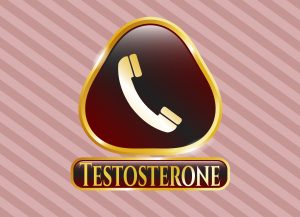 electronic devices. All of these distractions impair your sleep so please be aware of this.
electronic devices. All of these distractions impair your sleep so please be aware of this.
To recap, insomnia, sleep apnea, erectile dysfunction, and low testosterone levels are different medical issues. But they are all related, and by taking a holistic approach by combining TRT with lifestyle modifications these monsters can be controlled – or, better still, eradicated!
Contact us for a FREE, no-obligation discussion about what testosterone replacement therapy can do for you!
Contact Us Today For A Free Consultation
Dear Patient,
Once you have completing the above contact form, for security purposes and confirmation, please confirm your information by calling us.
Please call now: 1-800-380-5339.
Welcoming You To Our Clinic, Professor Tom Henderson.

- Our HGH Clinic And Web Site Privacy Policy [Last Updated On: May 23rd, 2019] [Originally Added On: December 14th, 2017]
- Idaho HGH Clinics [Last Updated On: August 26th, 2025] [Originally Added On: March 19th, 2018]
- Injectable HGH Prescriptions In Cheyenne, Wyoming [Last Updated On: April 15th, 2025] [Originally Added On: March 3rd, 2019]
- Injectable HGH Prescriptions In Milwaukee, Wisconsin [Last Updated On: April 19th, 2025] [Originally Added On: March 3rd, 2019]
- Injectable HGH Prescriptions In Madison, Wisconsin [Last Updated On: April 1st, 2025] [Originally Added On: March 3rd, 2019]
- Injectable HGH Prescriptions In Green Bay, Wisconsin [Last Updated On: March 22nd, 2025] [Originally Added On: March 3rd, 2019]
- Injectable HGH Prescriptions In Charleston, West Virginia [Last Updated On: May 17th, 2025] [Originally Added On: March 3rd, 2019]
- Injectable HGH Prescriptions In Vancouver, Washington [Last Updated On: February 18th, 2025] [Originally Added On: March 3rd, 2019]
- Injectable HGH Prescriptions In Tacoma, Washington [Last Updated On: January 16th, 2025] [Originally Added On: March 3rd, 2019]
- Injectable HGH Prescriptions In Spokane, Washington [Last Updated On: April 16th, 2025] [Originally Added On: March 3rd, 2019]
- Injectable HGH Prescriptions In Seattle, Washington [Last Updated On: May 30th, 2025] [Originally Added On: March 3rd, 2019]
- Injectable HGH Prescriptions In Washington D.C [Last Updated On: January 15th, 2025] [Originally Added On: March 3rd, 2019]
- Injectable HGH Prescriptions In Bellevue, Washington [Last Updated On: June 1st, 2025] [Originally Added On: March 3rd, 2019]
- Injectable HGH Prescriptions In Virginia Beach, Virginia [Last Updated On: January 18th, 2025] [Originally Added On: March 3rd, 2019]
- Injectable HGH Prescriptions In Richmond, Virginia [Last Updated On: January 25th, 2025] [Originally Added On: March 3rd, 2019]
- Injectable HGH Prescriptions In Portsmouth, Virginia [Last Updated On: April 10th, 2025] [Originally Added On: March 3rd, 2019]
- Injectable HGH Prescriptions In Norfolk, Virginia [Last Updated On: May 28th, 2025] [Originally Added On: March 3rd, 2019]
- Injectable HGH Prescriptions In Newport News, Virginia [Last Updated On: April 12th, 2025] [Originally Added On: March 3rd, 2019]
- Injectable HGH Prescriptions In Hampton, Virginia [Last Updated On: January 11th, 2025] [Originally Added On: March 3rd, 2019]
- Injectable HGH Prescriptions In Chesapeake, Virginia [Last Updated On: January 9th, 2025] [Originally Added On: March 3rd, 2019]
- Injectable HGH Prescriptions In Arlington, Virginia [Last Updated On: February 6th, 2025] [Originally Added On: March 3rd, 2019]
- Injectable HGH Prescriptions In Alexandria, Virginia [Last Updated On: May 24th, 2025] [Originally Added On: March 3rd, 2019]
- Injectable HGH Prescriptions In Montpelier, Vermont [Last Updated On: April 29th, 2025] [Originally Added On: March 3rd, 2019]
- Injectable HGH Prescriptions In West Valley City, Utah [Last Updated On: April 16th, 2025] [Originally Added On: March 3rd, 2019]
- Injectable HGH Prescriptions In West Jordan, Utah [Last Updated On: March 15th, 2025] [Originally Added On: March 3rd, 2019]
- Injectable HGH Prescriptions In Salt Lake City, Utah [Last Updated On: January 28th, 2025] [Originally Added On: March 3rd, 2019]
- Injectable HGH Prescriptions In Provo, Utah [Last Updated On: May 12th, 2025] [Originally Added On: March 3rd, 2019]
- Injectable HGH Prescriptions In Wichita Falls, Texas [Last Updated On: April 1st, 2025] [Originally Added On: March 3rd, 2019]
- Injectable HGH Prescriptions In Waco, Texas [Last Updated On: March 15th, 2025] [Originally Added On: March 3rd, 2019]
- Injectable HGH Prescriptions In San Antonio, Texas [Last Updated On: February 4th, 2025] [Originally Added On: March 3rd, 2019]
- Injectable HGH Prescriptions In Round Rock, Texas [Last Updated On: December 29th, 2024] [Originally Added On: March 3rd, 2019]
- Injectable HGH Prescriptions In Richardson, Texas [Last Updated On: March 10th, 2025] [Originally Added On: March 3rd, 2019]
- Injectable HGH Prescriptions In Plano, Texas [Last Updated On: February 6th, 2025] [Originally Added On: March 3rd, 2019]
- Injectable HGH Prescriptions In Pasadena, Texas [Last Updated On: March 31st, 2025] [Originally Added On: March 3rd, 2019]
- Injectable HGH Prescriptions In Midland, Texas [Last Updated On: April 23rd, 2025] [Originally Added On: March 3rd, 2019]
- Injectable HGH Prescriptions In Mesquite, Texas [Last Updated On: April 9th, 2025] [Originally Added On: March 3rd, 2019]
- Injectable HGH Prescriptions In McKinney, Texas [Last Updated On: May 19th, 2025] [Originally Added On: March 3rd, 2019]
- Injectable HGH Prescriptions In McAllen, Texas [Last Updated On: April 3rd, 2025] [Originally Added On: March 3rd, 2019]
- Injectable HGH Prescriptions In Lubbock, Texas [Last Updated On: May 10th, 2025] [Originally Added On: March 3rd, 2019]
- Injectable HGH Prescriptions In Lewisville, Texas [Last Updated On: January 29th, 2025] [Originally Added On: March 3rd, 2019]
- Injectable HGH Prescriptions In Laredo, Texas [Last Updated On: April 26th, 2025] [Originally Added On: March 3rd, 2019]
- Injectable HGH Prescriptions In Killeen, Texas [Last Updated On: March 4th, 2025] [Originally Added On: March 3rd, 2019]
- Injectable HGH Prescriptions In Irving, Texas [Last Updated On: February 9th, 2025] [Originally Added On: March 3rd, 2019]
- Injectable HGH Prescriptions In Houston, Texas [Last Updated On: April 6th, 2025] [Originally Added On: March 3rd, 2019]
- Injectable HGH Prescriptions In Grand Prairie, Texas [Last Updated On: January 17th, 2025] [Originally Added On: March 3rd, 2019]
- Injectable HGH Prescriptions In Garland, Texas [Last Updated On: February 14th, 2025] [Originally Added On: March 3rd, 2019]
- Injectable HGH Prescriptions In Fort Worth, Texas [Last Updated On: April 21st, 2025] [Originally Added On: March 3rd, 2019]
- Injectable HGH Prescriptions In El Paso, Texas [Last Updated On: February 28th, 2025] [Originally Added On: March 3rd, 2019]
- Injectable HGH Prescriptions In Denton, Texas [Last Updated On: May 6th, 2025] [Originally Added On: March 3rd, 2019]
- Injectable HGH Prescriptions In Dallas, Texas [Last Updated On: December 31st, 2024] [Originally Added On: March 3rd, 2019]
- Injectable HGH Prescriptions In Corpus Christi, Texas [Last Updated On: June 7th, 2025] [Originally Added On: March 3rd, 2019]
- Injectable HGH Prescriptions In Carrollton, Texas [Last Updated On: June 3rd, 2025] [Originally Added On: March 3rd, 2019]
- Injectable HGH Prescriptions In Brownsville, Texas [Last Updated On: February 4th, 2025] [Originally Added On: March 3rd, 2019]
- Injectable HGH Prescriptions In Beaumont, Texas [Last Updated On: April 4th, 2025] [Originally Added On: March 3rd, 2019]
- Injectable HGH Prescriptions In Austin, Texas [Last Updated On: June 5th, 2025] [Originally Added On: March 3rd, 2019]
- Injectable HGH Prescriptions In Arlington, Texas [Last Updated On: January 13th, 2025] [Originally Added On: March 3rd, 2019]
- Injectable HGH Prescriptions In Amarillo, Texas [Last Updated On: March 18th, 2025] [Originally Added On: March 3rd, 2019]
- Injectable HGH Prescriptions In Abilene, Texas [Last Updated On: January 5th, 2025] [Originally Added On: March 3rd, 2019]
- Injectable HGH Prescriptions In Nashville, Tennessee [Last Updated On: March 2nd, 2025] [Originally Added On: March 3rd, 2019]
- Injectable HGH Prescriptions In Murfreesboro, Tennessee [Last Updated On: March 8th, 2025] [Originally Added On: March 3rd, 2019]
- Injectable HGH Prescriptions In Memphis, Tennessee [Last Updated On: March 28th, 2025] [Originally Added On: March 3rd, 2019]
- Injectable HGH Prescriptions In Knoxville, Tennessee [Last Updated On: March 25th, 2025] [Originally Added On: March 3rd, 2019]
- Injectable HGH Prescriptions In Clarksville, Tennessee [Last Updated On: February 2nd, 2025] [Originally Added On: March 3rd, 2019]
- Injectable HGH Prescriptions In Chattanooga, Tennessee [Last Updated On: January 29th, 2025] [Originally Added On: March 3rd, 2019]
- Injectable HGH Prescriptions In Sioux Falls, South Dakota [Last Updated On: December 25th, 2024] [Originally Added On: March 3rd, 2019]
- Injectable HGH Prescriptions In Columbia, South Carolina [Last Updated On: February 2nd, 2025] [Originally Added On: March 3rd, 2019]
- Injectable HGH Prescriptions In Charleston, South Carolina [Last Updated On: January 31st, 2025] [Originally Added On: March 3rd, 2019]
- Injectable HGH Prescriptions In Providence, Rhode Island [Last Updated On: January 30th, 2025] [Originally Added On: March 3rd, 2019]
- Injectable HGH Prescriptions In Pittsburgh, Pennsylvania [Last Updated On: May 18th, 2025] [Originally Added On: March 3rd, 2019]
- Injectable HGH Prescriptions In Erie, Pennsylvania [Last Updated On: January 4th, 2025] [Originally Added On: March 3rd, 2019]
- Injectable HGH Prescriptions In Allentown, Pennsylvania [Last Updated On: May 6th, 2025] [Originally Added On: March 3rd, 2019]
- Injectable HGH Prescriptions In Salem, Oregon [Last Updated On: January 31st, 2025] [Originally Added On: March 3rd, 2019]
- Injectable HGH Prescriptions In Portland, Oregon [Last Updated On: February 1st, 2025] [Originally Added On: March 3rd, 2019]
- Injectable HGH Prescriptions In Gresham, Oregon [Last Updated On: January 30th, 2025] [Originally Added On: March 3rd, 2019]
- Injectable HGH Prescriptions In Eugene, Oregon [Last Updated On: January 27th, 2025] [Originally Added On: March 3rd, 2019]
- Injectable HGH Prescriptions In Tulsa, Oklahoma [Last Updated On: May 26th, 2025] [Originally Added On: March 3rd, 2019]
- Injectable HGH Prescriptions In Oklahoma City, Oklahoma [Last Updated On: February 22nd, 2025] [Originally Added On: March 3rd, 2019]
- Injectable HGH Prescriptions In Norman, Oklahoma [Last Updated On: April 28th, 2025] [Originally Added On: March 3rd, 2019]
- Injectable HGH Prescriptions In Toledo, Ohio [Last Updated On: April 14th, 2025] [Originally Added On: March 3rd, 2019]
- Injectable HGH Prescriptions In Dayton, Ohio [Last Updated On: April 11th, 2025] [Originally Added On: March 3rd, 2019]

